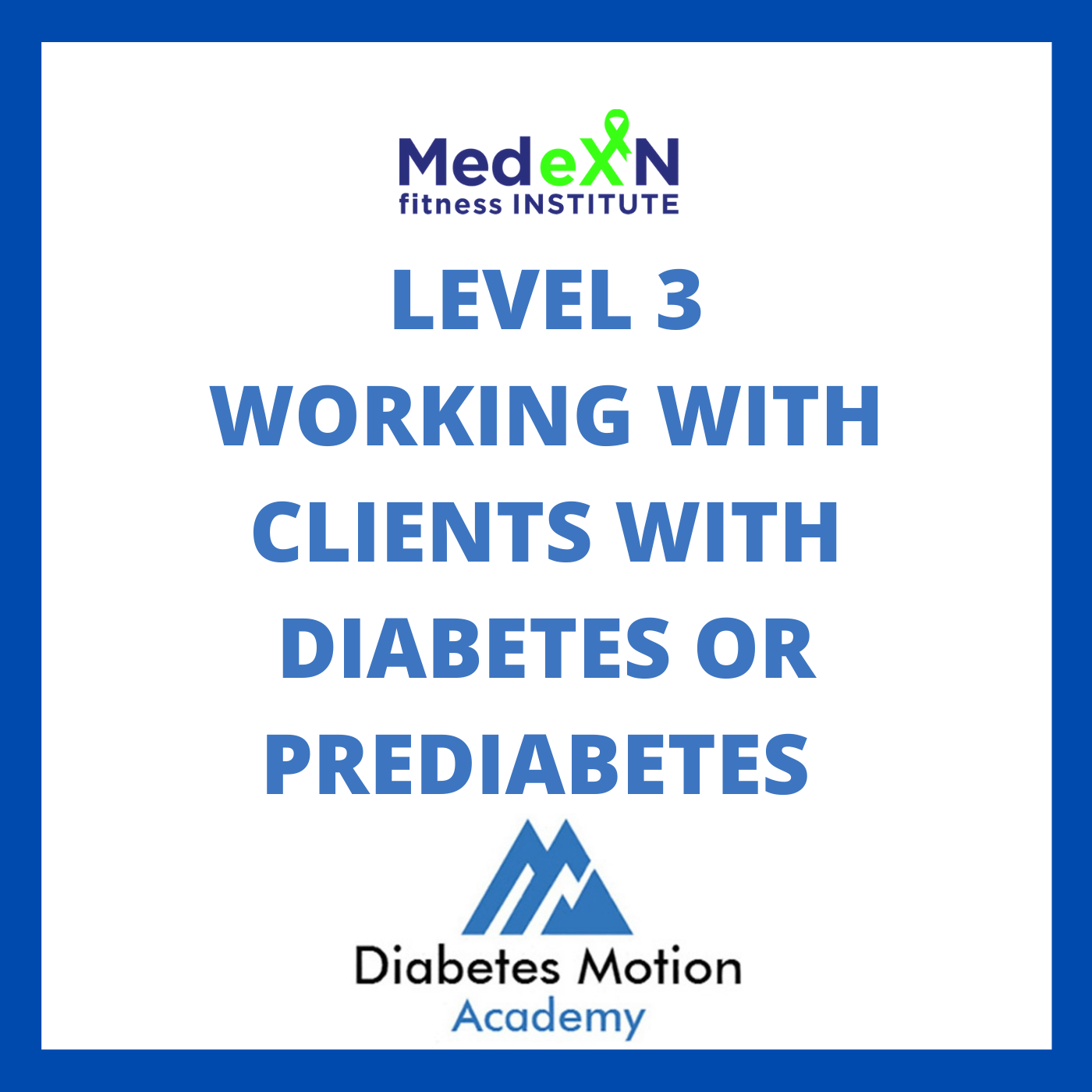Working with Clients with Diabetes or Prediabetes **** (Level 3: Advanced/ Expert) Canadian Edition/Save 20% when you use code SAVE20 at the checkout!
$151.20
Save 20% when you use code SAVE20 at the checkout!
Reach the Summit….
Welcome to Level 3; this advanced course gives Certified Personal Trainers and other Fitness Professionals the Summit of Knowledge on working with clients with any type of diabetes or with prediabetes. It covers the final topics related to diabetes and prediabetes, including gestational diabetes and other concerns related to working with female clients. There is more information about the types of insulin people with type 1 diabetes use (as well as many with type 2 and gestational diabetes) and how to help dedicated athletes troubleshoot their performance issues. Finally, Fitness Professionals will learn more about the best technologies to use to train clients with diabetes and prediabetes.
On the successful completion of Level 3 (and the preceding Level 1 and Level 2 courses) the certification of Diabetes Exercise Specialist (DES) will be provided.
Nearly 33% of Canadians are living with Diabetes or Prediabetes!!!!!!
All certified Personal Trainers and Group Instructors need this information to train these clients!
***WAIT! HAVE YOU COMPLETED LEVELS 1 & 2? COMPLETION OF LEVELS 1 & 2 IS REQUIRED BEFORE ENROLLING IN LEVEL 3***
Save 20% when you use code SAVE20 at the checkout!
PRICES ARE IN CDN DOLLARS



 Course Author:
Course Author:
Reviews
There are no reviews yet.